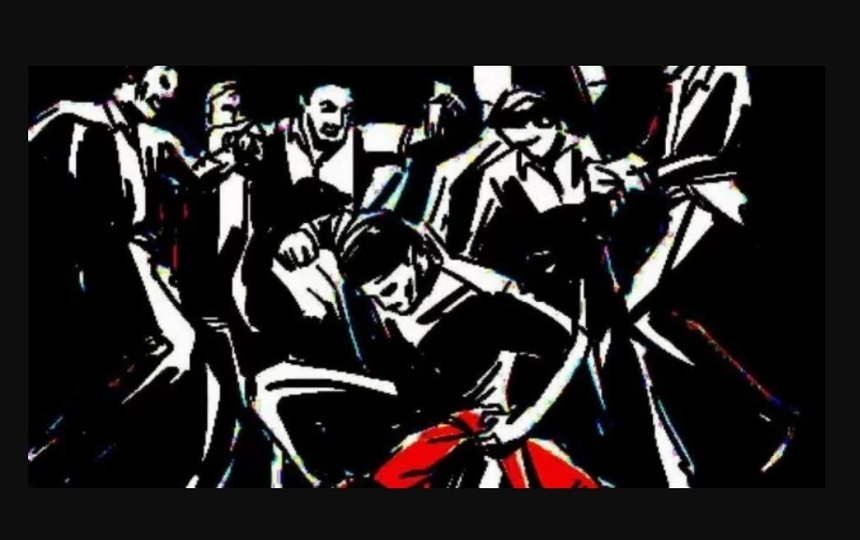In the first six months of 2019, 181 hate crimes were reported across India, according to Amnesty’s Halt the Hate website. This is the highest in the past three years. 37 of the victims died and in at least 30 instances, the victims were raped or sexually assaulted.
February 2019 saw the highest incidence with 37 hate crimes, followed by 36 incidents in March. The number marked a 45% increase from the same period last year. Of the 181 incidents, 121 were committed against Dalits (the former untouchable castes) and 40 against Muslims.
The report said a total of 902 cases of hate crimes were recorded between September 2015 and June 2019. Of these, in 619 cases, the victims were Dalits. Muslims, Christians and those of diverse sexual orientations were also among those targeted.
“Overall, 72 reported hate crimes [in 2019] were mob attacks. Of these, more than half (37 incidents) were directed at Muslims. In all the incidents, the victims were forced to either say ‘Vande Mataram’ [Glory to Mother India] or ‘Jai Sri Ram’ [Hail Ram, a Hindu god] or Jai Hanuman’ [Hail Hanuman, a Hindu god] or ‘Pakistan Murdabad’ [Down with Pakistan] and/or were forced to remove their skull caps. In five such incidents, the victims were lynched to death,” Amnesty International said.
In June, a 24-year-old Muslim youth, Tabrez Ansari, was lynched after being tied to a pole for several hours in Jamshedpur in the State of Jharkhand. Two graphic videos that emerged of the incident revealed that the mob had forced him to chant Jai Sri Ram and Jai Hanuman while torturing him to death on accusations of theft.
Many of the hate crimes are committed by cow vigilantes. The cow is considered sacred by a section of Hindus and even since the far-right government of Narendra Modi came to power in 2014, there has been a rise in lynchings committed in the name of protecting cows. Many of the victims are farmers, traders and people who are accused of transporting cattle for slaughter or consuming beef.
India’s far-right wing prime minister Narendra Modi has said that the killing of minorities in the name of protecting the cow is wrong. However, the seriousness of his words is in doubt considering that leaders of his own party, the Bharatiya Janata Party, have encouraged those involved in these crimes. Most of these crimes have taken place in States ruled by the BJP, such as Uttar Pradesh, Gujarat and Haryana. According to the Amnesty report, Uttar Pradesh has recorded the highest number of hate crimes in the country.
A sign of the right-wing’s approach to this issue is a speech on October 8 by Mohan Bhagwat, head of the Rashtriya Swayamsevak Sangh (RSS). The RSS, a socio-political and paramilitary organization, is the ideological parent of the BJP. Bhagwat, instead of acknowledging the issue, declared that lynching was a western construct that had no precedent in Indian society.
Incidentally, in July, 49 eminent writers, artists, filmmakers and activists wrote an open letter to the prime minister, urging him to prevent the deaths of minorities by mob lynching. Early this month, in the State of Bihar which is ruled by a BJP ally, a judicial magistrate ordered the filing of a case against the signatories to the letter on charges of tarnishing the image of the country. After a public outcry, the case was closed but it serves as an indicator of the approach to those who raise this issue.
According to Amnesty International’s Aakar Patel, the Supreme Court had stressed the need for legally addressing the issue of lynching last year but only the States of Rajasthan and Manipur have passed laws to this effect.
“The central government maintains that state governments are competent to enact legislation criminalizing mob lynching. In the absence of any specific laws, these incidents are booked under various legal provisions such as ‘rioting’, ‘unlawful assembly’, ‘murder’, ‘criminal intimidation’, ‘intentional insult with intent to provoke breach of peace’ etc., which dilutes the gravity of the offense and renders the statistics inadequate as well as misleading,” the report remarked.





